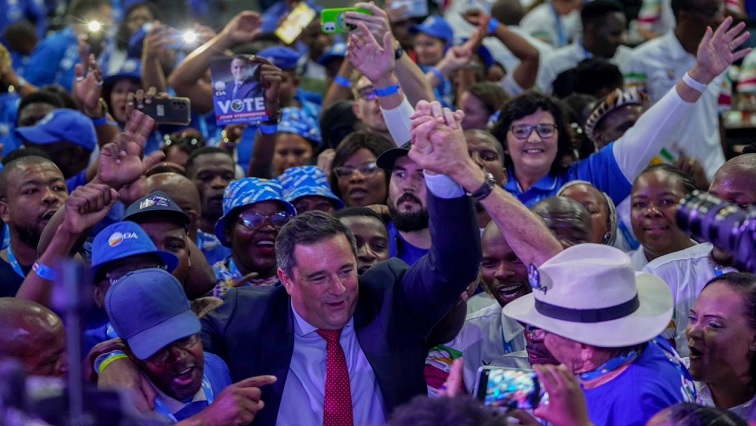Startling accusations against the Democratic Alliance for allegedly sabotaging South Africa’s energy sector to bolster their case for privatization of state-owned enterprises (SOEs) shed light on a deeper, more concerning strategy. The push to privatize ESKOM following the 2024 elections, amidst these allegations, raises serious questions about the DA’s intentions and the potential consequences for South Africa’s economy and its citizens.
DA’S AMERICAN TIES: PRIVATIZATION AND SOUTH AFRICA’S SOEs
The narrative of privatizing South Africa’s SOEs, fervently advocated by the DA, reveals potential ulterior motives tied to American interests. The interplay between alleged acts of sabotage, the promotion of privatization, and the involvement of U.S. interests suggests a concerted effort to sway South African policy in a direction that could significantly benefit foreign powers at the expense of national interest.
With significant employment and economic stability at stake, the discussion on the future of South Africa’s SOEs, including giants like Transnet and ESKOM, is more than a matter of corporate governance. It is about safeguarding the livelihoods of hundreds of thousands and ensuring the continued development and stability of the South African economy. The prospect of privatizing these entities introduces a myriad of risks related to job security, labor rights, and economic sovereignty.
The operational struggles and financial woes of key SOEs like Transnet and ESKOM underscore the urgency for reform. However, the DA’s approach, advocating for privatization, might not be the silver bullet it is portrayed to be. Such a shift could exacerbate rather than alleviate the challenges facing these enterprises, leading to further economic strain and widespread job losses.
Further concerns arise regarding the possibility of broader American involvement in the privatization process of Transnet. BlackRock’s potential role in it is also questionable. Given BlackRock’s extensive global presence and the potential influence of American interests, questions about economic sovereignty emerge. The fear of job displacement and cuts intensifies, undermining local empowerment and sustainable development efforts. South Africa must scrutinize these aspects and prioritize strategies that safeguard national interests, ensuring the responsible management of critical infrastructure for the benefit of all citizens.

Privatization under the DA’s guidance threatens to upend the lives of thousands of South African workers and reshape the economy in ways that favour a select few. The transition could see massive layoffs, prioritization of profits over people, and the eventual redirection of resources away from national development towards international profit margins.
EXPOSING THE SELF-SERVING AGENDA

Beneath the veneer of efficiency and anti-corruption rhetoric lies a DA agenda that aligns more closely with foreign interests and elite enrichment than with the welfare of the South African populace. The move towards privatizing SOEs, while presented as a solution, appears to be a strategy that would primarily benefit those beyond South Africa’s borders, betraying the interests and needs of the nation’s citizens.












